Events / SoundS
SOUND IN ARTISTIC RESEARCH
public lecture series
WiSe 2023/24
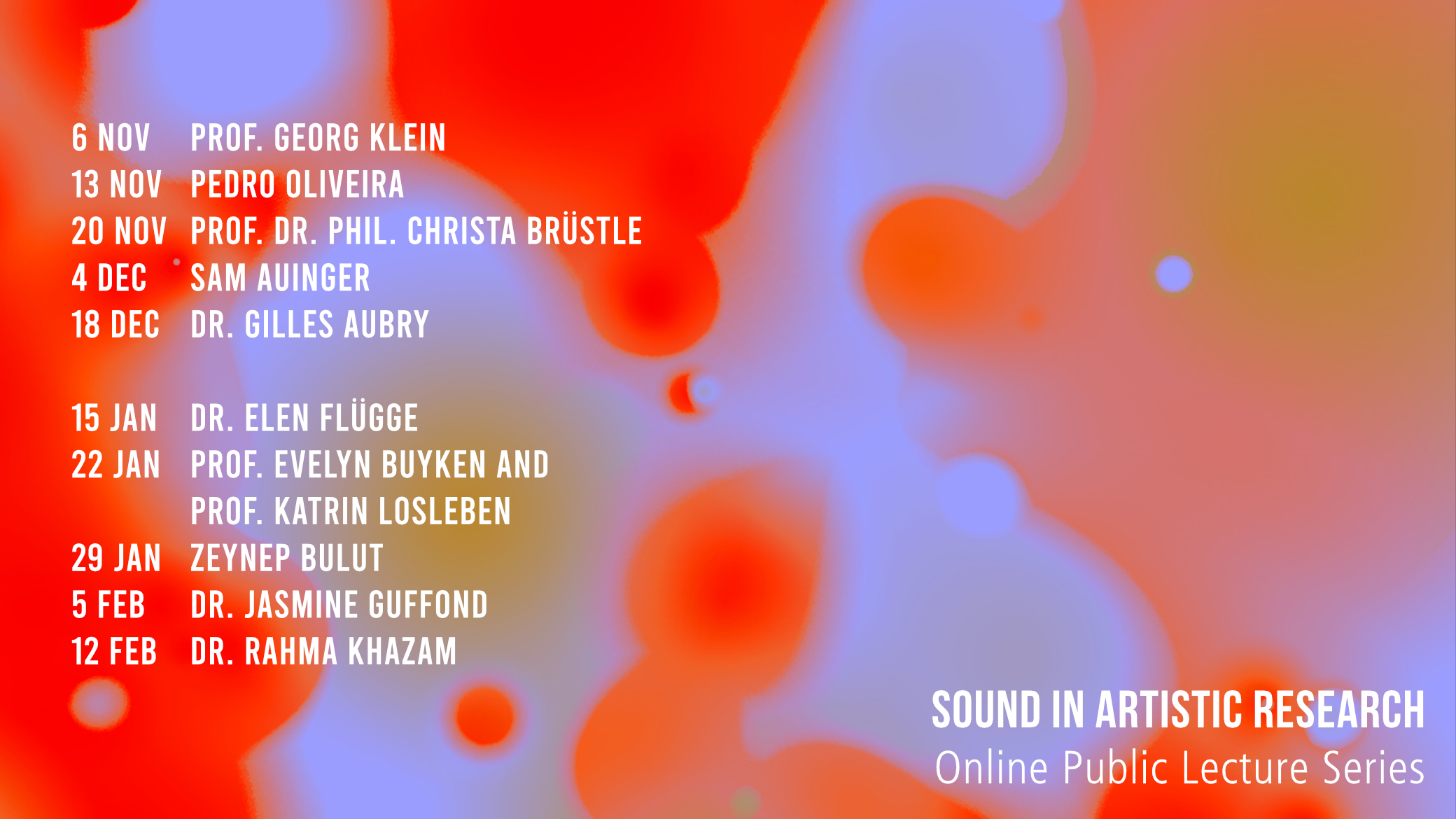
Photos © Kathrin Scheidt
6 Nov 2023 — 12 Feb 2024
Mondays | 6 — 8 p.m. (UTC +1) | online
During the winter semester 2023/24, Sound Studies and Sonic Arts presents the second lecture series exploring sound in artistic research. The Sound Studies and Sonic Arts master program implies an understanding that theory and practice mutually inform each other and represent two sides of the same coin. We’d like to invite you to join this lecture series and explore the different perspectives on the topic of artistic research as an encouragement to reflect on your own positioning.
Artistic research, aesthetic research, and practice-based research have gained a lot of momentum at art schools and universities in the past few decades. Focusing on alternatives to established methodologies and paradigms based on evidence, historical and political analysis, musicology, critical thinking, and cultural studies, this lecture series addresses how artistic research has been established in sound studies and in the sonic arts.
Moderated by Prof. Dr. Sabine Sanio
Primarily for the current MA Sound Studies and Sonic Arts students at the UdK, these talks are also open to the general public and students from all other institutions and departments.
6 Nov 2023
Speaker : Prof. Georg Klein
Based on Re-search
Sound artist Georg Klein combines theoretical considerations with an artistic perspective on the subject of artistic research. Starting point are Dieter Mersch’s reflections, which he presented during the last lecture series at SoundS and in his book “Epistemologies of Aesthetics”. Using examples from his own artistic development of research-based sound art over the last 25 years, both initial conditions and artistic results are presented and put up for discussion. The conceptual distinction between research (“Forschung”) and investigation (“Recherché”) plays an important role, as does the different potential with regard to public impact of the outcome.
Dieter Mersch
Dieter Mersch, Prof. em. for Aesthetic Theory at the Zurich University of the Arts and former director of its Institute for Theory, also was the president of the German Society for Aesthetics until this year. Most important publications : Was sich zeigt. Materialität, Präsenz, Ereignis (2002); Ereignis und Aura. Untersuchungen zu einer Ästhetik des Performativen (2002); Medientheorien zur Einführung (2006); Posthermeneutik (2010); and Epistemologien des Ästhetischen (2015).
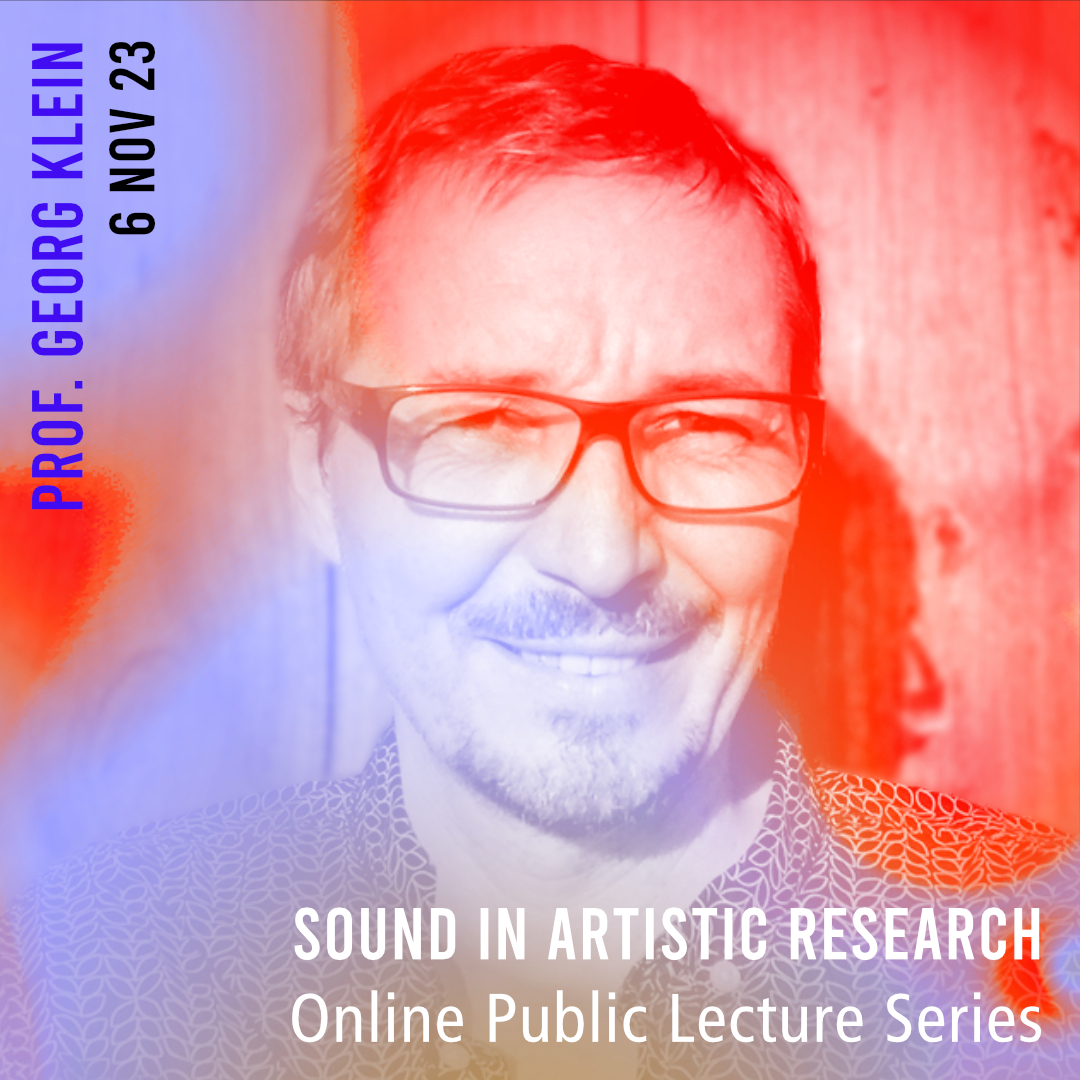
Photo © speakers
13 Nov 2023
Speaker : Dr. Pedro Oliveira
Crossover/Crosstalk
In this talk I will present and discuss my ambiguous relationship with methods as they emerge in both my academic and artistic practice, focusing on ways of arriving and finding comfort in unsettlement. Using the border as both object of study and place of enunciation – largely inspired by the work of Gloria Anzaldúa –, with my work and research I seek to probe and rehearse the limits and limitations of the artistic and academic by complicating the boundaries and demands of both. I will outline these issues with and through my most recent artistic production, which stems from my long term project of inquiring the so-called “dialect recognition software” used by the German migration authorities in asylum cases. We will listen and discuss the ways in which these works are traversed by and speak to academic research and political activism.
Dr. Pedro Oliveira
Dr. Pedro Oliveira is a researcher and sound artist whose work is committed to an anticolonial study of listening and its intersections with violence at the European border. He has exhibited and performed work at the Akademie der Künste Berlin, Send/Receive Festival Winnipeg, CTM Festival, Blaues Rauschen Festival, Haus der Kulturen der Welt, Fondazione Merz Torino, Festival Novas Freqûencias, Akademie Schloss Solitude, the Max-Planck Institute, among others. Currently he is a Research and Arts Fellow at the Leuphana Institute for Advanced Studies, and occasional lecturer at the Sound Studies and Sonic Arts at the Universität der Künste Berlin. He holds a PhD from the Universität der Künste Berlin.
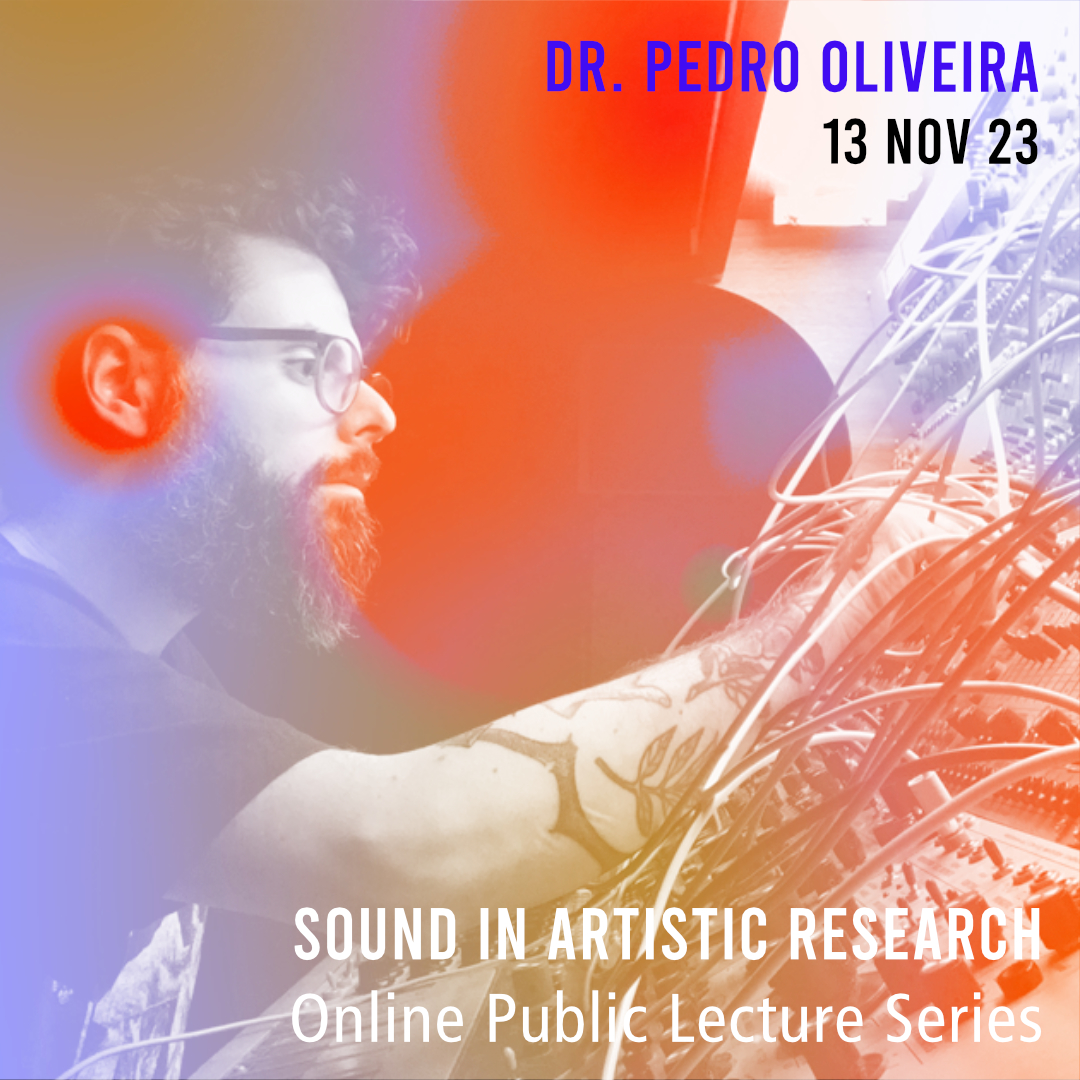
Photo © speakers
20 Nov 2023
Speaker : Prof. Dr. phil. Christa Brüstle
Artistic Research – Affirmative View of a Musicologist
Artistic Research – Affirmative View of a Musicologist
In the current discourse of Artistic Research, many artists and some philosophers are represented, but hardly any voices from academic musicology. The dialogue between the disciplines would undoubtedly be more than necessary. The lecture will discuss a musicological position that is supportive and coöperative. It is the result of my own experiences as a supervisor of artistic-scientific doctoral students. Above all, it turned out that a processual approach to artistic working methods and their verbalization are central in a joint project of Artistic Research. The mutual understanding of art and science is a win-win situation for everyone involved.
Prof. Dr. phil. Christa Brüstle
Prof. Dr. phil. Christa Brüstle is Senior Scientist in Musicology and since 2012 Director of the Centre for Gender Research and Diversity as well as Professor of Musicology, Women’s and Gender Studies at the University of Music and Performing Arts Graz from 2016–2021. From 1999 to 2005 and 2008 she was a member of the Collaborative Research Center “Cultures of the Performative” at the Free University of Berlin, where she finished her post-doc qualification in 2007. From 2008 to 2011 she was a visiting professor at the Berlin University of the Arts and in 2014 a visiting professor of musicology at the University of Heidelberg. She is also a board member of the Institut für Neue Musik und Musikerziehung (INMM) Darmstadt. Her publications include Konzert-Szenen. Bewegung – Performance – Medien. Musik zwischen performativer Expansion und medialer Integration 1950 – 2000, Stuttgart 2013 ; Text as Source and Material in Contemporary Music Theatre (Studien zur Wertungsforschung 65), Wien 2023.
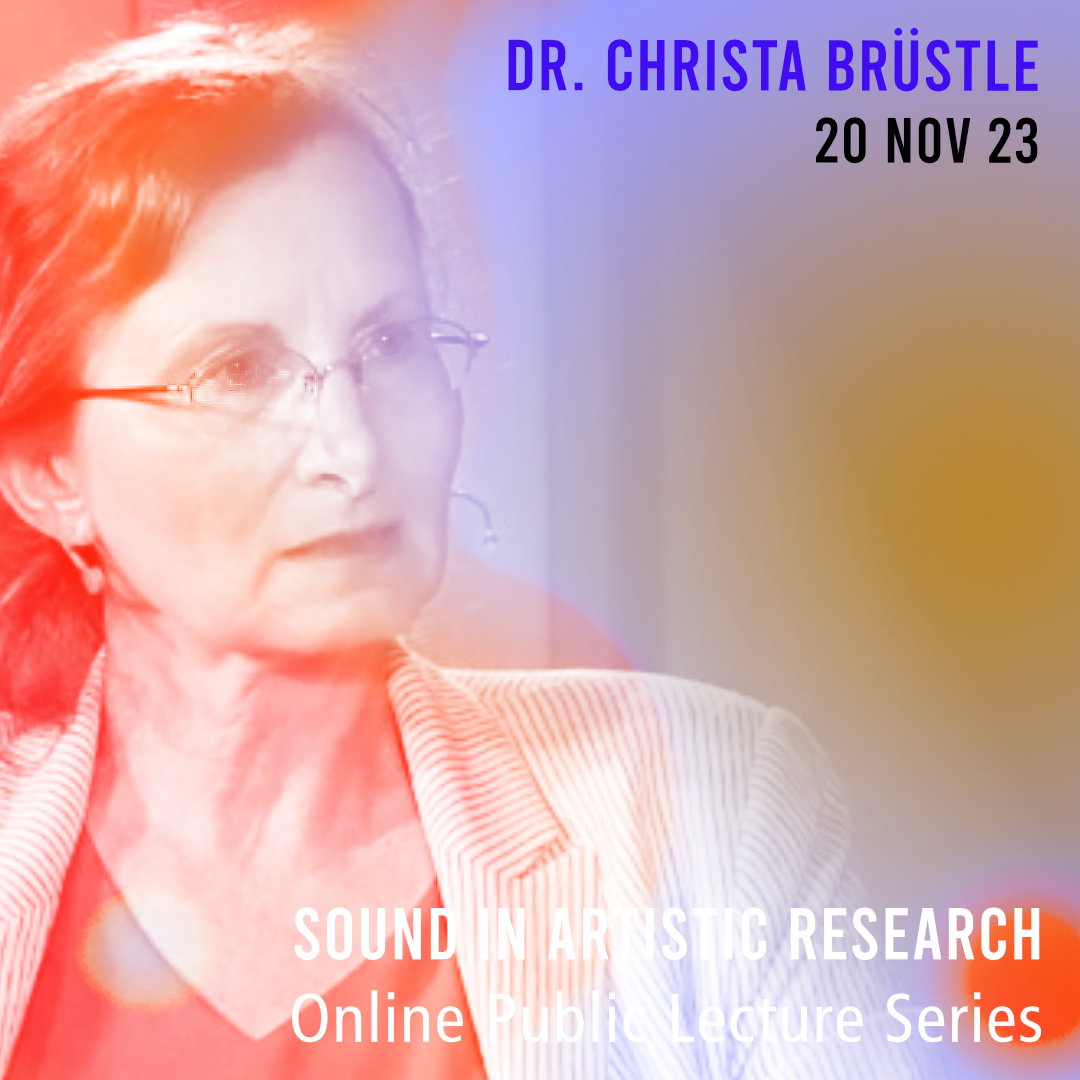
Photo © speaker
4 Dec 2023
Speaker : Sam Auinger
Thinking with the Ears – towards a Hearing Perspective
Thinking with the Ears – towards a Hearing Perspective
Looking back on my more than 35 years of artistic collaboration with Bruce Odland, we operated from the beginning with developing an auditory perspective as a general approach to our creative works, mainly sound installations in public spaces. Our work was an ongoing artistic research that touched all the areas that seemed relevant to us to understand how sound is created, how people perceive sound and what stories the ears tell. Acoustics, design and materials, psychoacoustics, neurology, and physiology, in the sense of why do I hear what I hear, including all the cultural and social implications that a sound event triggers in us, are the central questions of this research. This approach resulted in methods, practices, and insights that helped us and is still helping us in our work. Our approach which we named hearing perspective, created and still generates discourse material in many related and unrelated fields such as architecture, urban planning, study of the senses and the political dimension of sounds. In my lecture “Thinking with the Ears — towards a Hearing Perspective,” I will discuss our artistic research employing some works and give insights into our working process.
Sam Auinger
Sam Auinger is a sonic thinker, composer, and sound artist. His artistic research focuses on deepening the understanding of acoustic/auditory qualities in urban living environments. He propagates a “thinking with the ears.” For him, it is a critical everyday practice for understanding our role in an endangered planetary climate at all levels, from the social to the ecological. Together with artist Bruce Odland, he founded O+A in 1989. Their central theme is hearing perspective. They are known for their permanent sound installations in public spaces, tuning — transforming urban sound in real-time. As in the works harmonic bridge MassMoca (US) since 1998, Sonic Vista Frankfurt (D) since 2011, and at documenta 14 with “Symphony of Resonances” in Thessaloniki (GR) in 2017, among others.
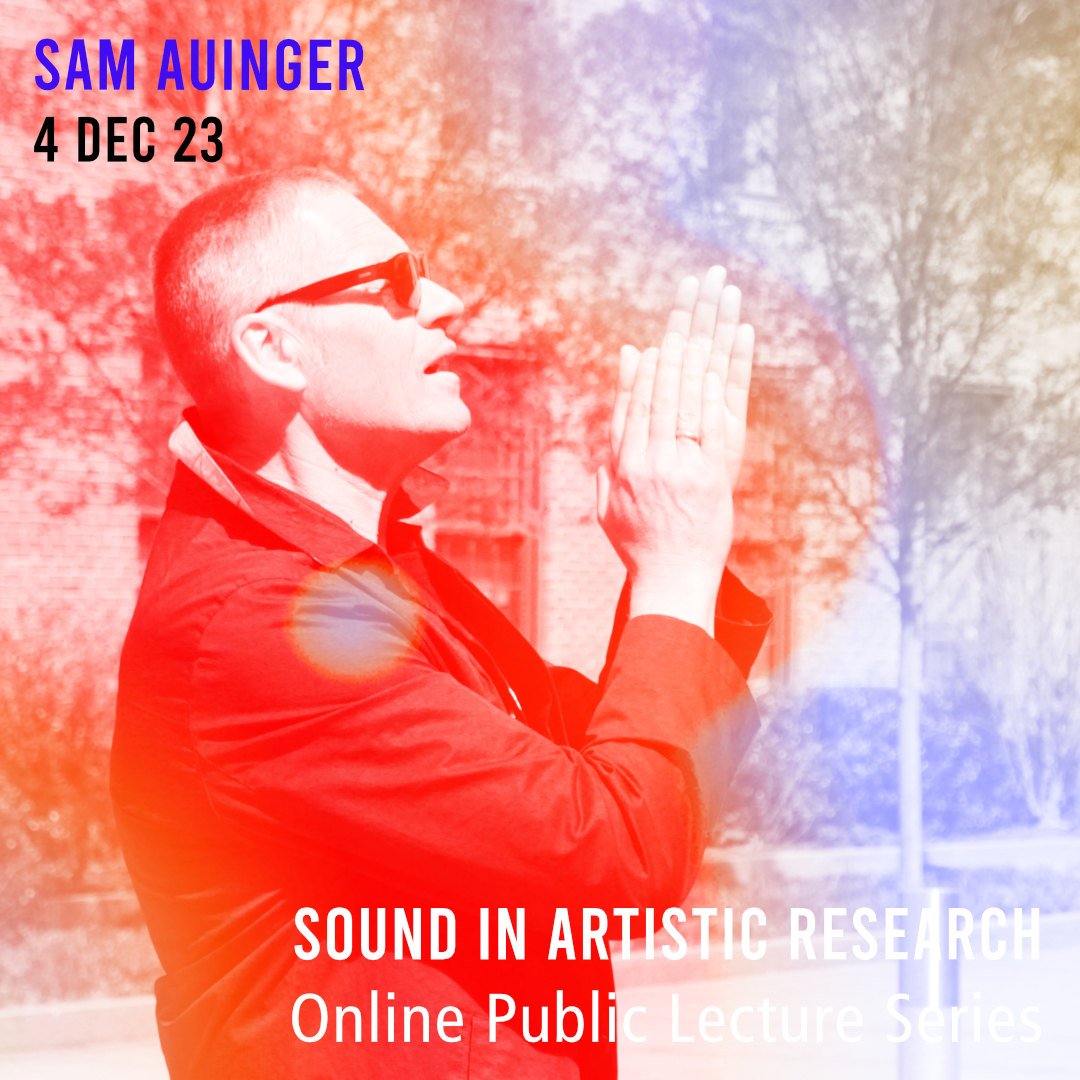
Photo © speaker
18 Dec 2023
Speaker : Dr. Gilles Aubry
Plural Sound Aesthetics : Artistic research on sound, aurality, and ecology in Morocco
Following the publication of his book “Sawt, Bodies, Species” (Adocs 2023), Gilles Aubry presents findings from his doctoral research on sound and aurality in Morocco. Engaging with artists, musicians, and scientists, Aubry’s more-than-sonic approach encompasses a wide range of practices, including music archives, seismology, Sufi healing, industrial extractivism, and ecological voices. The presentation emphasizes **/collaboration/**as a comprehensive methodology for the co-production and mediation of knowledge in both anthropological and artistic research. This involves observations, conversations, experiments, and performative interventions conducted with local people and communities. Listening takes a central role in these exchanges, with a focus on the potential for social, political, and ecological change.
Dr. Gilles Aubry
Dr. Gilles Aubry operates between of sound and visual arts, experimental music, and academic research. His creations include installations, films, performances, and radio pieces, delving into sonic materiality, technology, and ecology. Aubry’s works have been showcased at numerous international art institutions, music venues, festivals, and conferences, including Sonic Acts Amsterdam (2010), Ultraschall Festival Berlin (2015), documenta 14 in Kassel (2017), HKW Berlin (2018), Reina Sofia Museum in Madrid (2020), and Taiwan International Documentary Festival (2021). He holds a PhD in social anthropology and teaches sound art at UDK and HMKW Berlin. Published by Adocs Press in 2023, Aubry’s book “Sawt, Bodies, Species” offers an in-depth account of sound and aurality in Morocco.
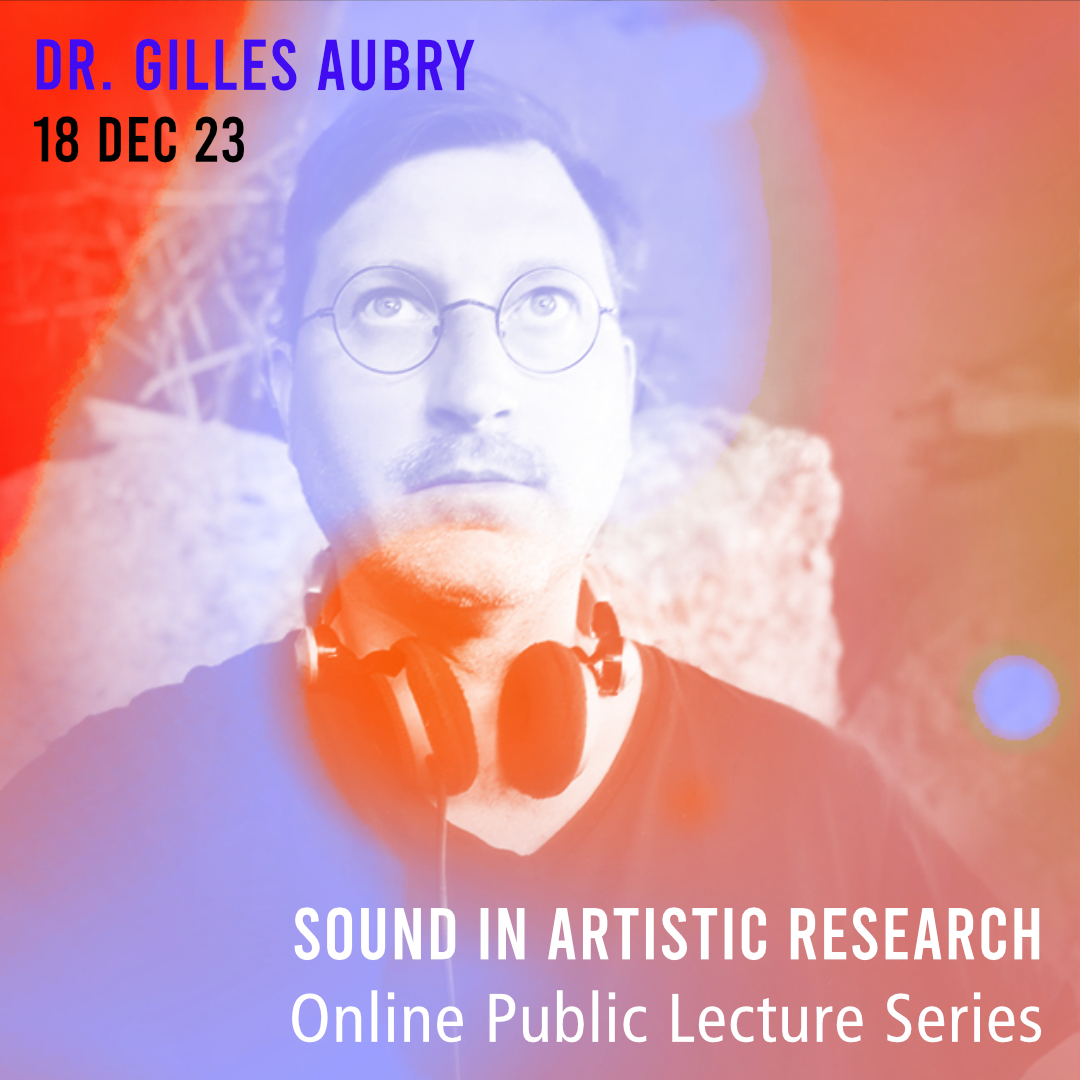
Photo © speaker
15 Jan 2024
Speaker : Dr. Elen Flügge
Listening while : auditory practices in research
What, and how, are we ‘studying’ when we undertake sound studies ? We might be observing our own listening habits and those of others. We might be investigating acoustics on site or theorizing how ‘listening’ is understood in a particular social context. Often, we are using some form of listening to investigate other phenomena, places, or persons. Listening while walking, recording, interviewing, writing or drawing can all become the basis for practical methods. This lecture explores a number of listening practices – in the sense of formalized and applied uses of listening – as means of understanding shared auditory environments. These include methods employed in artistic and qualitative research in sonic arts as well as other disciplines, which have used techniques such as listening walks or audio recording in research designs. This talk considers how listening practices might be construed as situated, multifaceted, culturally-embedded, and adaptable tools for processes of knowledge creation and/or disruption.
Dr. Elen Flügge
Dr. Elen Flügge is a writer, researcher and sound artist, focusing on personal and urban sound space, site specific works, and listening perspectives. After studying philosophy at Bard College, NY, she obtained a Sound Studies masters at the UdK (University of Arts) in Berlin, focusing on auditory culture and experimental sound installation.
She recently completed her PhD, “Listening Practices for Urban Sound Space in Belfast” at SARC (Sonic Arts Research Centre) at Queen’s University Belfast, UK, in coöperation with Recomposing the City research group. Her project used methods drawn from sonic arts and ethnography, such as conversational soundwalks, to explore inhabitants’ auditory experience in public spaces and consider potentials of city sound planning. Flügge has been active in numerous musical projects and ensembles, with violin as well as voice, such as HIVE experimental choir in Belfast. Her publications on sonic arts and listening include a chapter for the Bloomsbury Handbook of Sound Art (2020).
personalsoundspace.com
http://hivechoir.com/
She is currently developing a soundwalk for the upcoming Klangstaetten / Stadtklaenge festival in Braunschweig 2023. https://www.klangstaetten.de/

Photo © speaker
29 Jan 2024
Speaker : Dr. Zeynep Bulut
Historical Turns and Promises of Sounding Together
This talk considers the historical terms and cultural significance of artistic research in sound. The term, “artistic research,” has been employed in academic and creative contexts since the early twentieth-century. Radical formations of the time, such as the Bauhaus School and Black Mountain College, introduced inter and cross-disciplinary possibilities of art making, and informed art making as research. They also underlined the processes of art making both as an individual and as a communal practice associated with the foundations of “democratic citizen.” (Turner 2013, 2019). Since then, various research initiatives, which use the terms like practice-based research, research-based art or artistic research, have directly or indirectly incorporated these ideas into their programmes. In particular, artistic research in sound has pursued and contributed to experimental, experiential, improvisational, collaborative, socially engaged, and participatory turns of creative, social, and scientific research. The promise of these turns and the artistic research is arguably to develop critical and unorthodox methods to raise awareness for individual and collective environs, to further contextualise, question, and discuss contemporary social issues such as the climate crisis, mobility and migration, as well as to highlight sound making and sounding together as a transformative way for considering new ways of being together. In this talk, I take a close look at this promise. Drawing on works by Pauline Oliveros, Lina Lapelyte, and John Akomfrah, I will explore different forms of sound making and sounding together and what they may capacitate and transform.
Dr. Zeynep Bulut
Dr. Zeynep Bulut has been a Lecturer in Music at Queen’s University Belfast since 2017. She was previously an Early Career Lecturer in Music at King’s College London (2013−2017), a post-doctoral research fellow at the ICI Berlin Institute for Cultural Inquiry (2011−2013), and a visiting postdoctoral fellow at the Max Planck Research Group “Epistemes of Modern Acoustics,” led by Prof. Dr. Viktoria Tkaczyk at the Max Planck Institute for the History of Science (2018). She received her PhD in Critical Studies/Experimental Practices in Music from the University of California, San Diego (2011). Her research interests include voice and sound studies, experimental music, sound and media art, technologies of hearing and speech, voice and environment, and music and medicine. Her first manuscript, titled, Building a Voice : Sound, Surface, Skin (under contract with Goldsmiths Press), explores the emergence, embodiment, and mediation of voice as skin. Her articles have appeared in various volumes and journals including The Oxford Handbook of Sound Art, Perspectives of New Music, Postmodern Culture, and Music and Politics. She is reviews editor of Twentieth-Century Music. Alongside her scholarly work, she has also exhibited sound works, composed and performed vocal pieces for concert, video, and theatre, and released two singles. Her composer profile has been featured by British Music Collection. She is a certified practitioner of Deep Listening, and project lead for the research network and platform, Music, Arts, Health, and Environment (MAHE) supported by the Economic and Social Research Council’s Impact Acceleration Account at QUB.
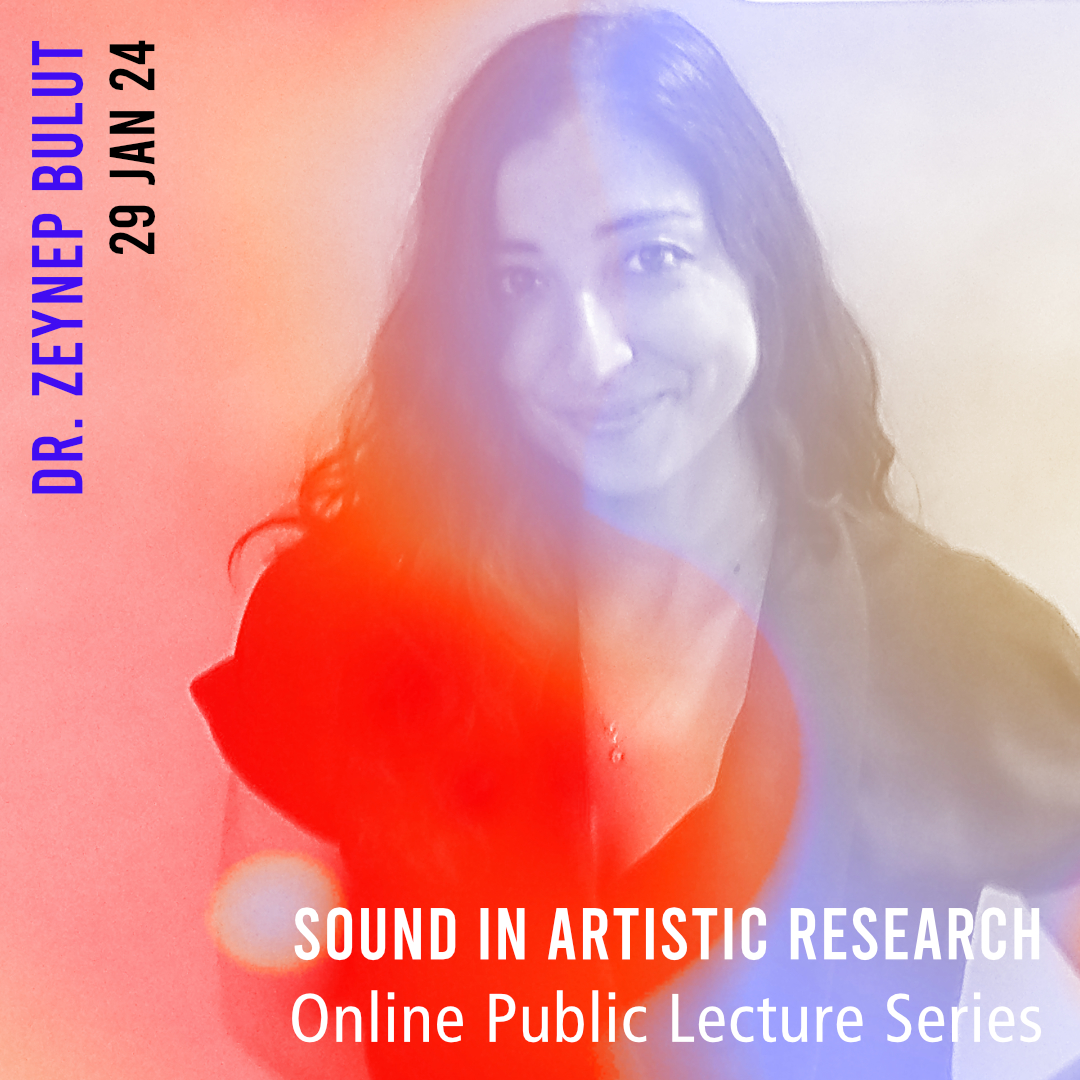
Photo © Janno Bergmann For Copper Leg
22 Jan 2023
Speaker : Prof. Evelyn Buyken & Prof. Katrin Losleben
‘Becoming-with’ in the Sonic
Music and bodies ‘become’ through the co-creational processes of sound and different human and non-human bodies within social contexts. To understand better the relation of musicians, traditionally understood as those who produce sounds, and the sounds themselves, we conducted micro-phenomenological in-depth interviews with six cellists. This novel method allowed us to zoom-in to the moment of creation of sound. Extending recent understanding of music as “ontological politics”, and drawing on Karen Barad’s accounts of intra-action, we theorize how sounds, materials and bodies ‘become-with’ each other, and iteratively co-constitute the musician-persona, the sound and the instruments.
Prof. Evelyn Buyken
Evelyn Buyken is a cellist and music researcher based in Cologne. Her practice involves baroque cello, artistic research, ensemble playing, concert dramaturgy and teaching artistic research at Higher Music Education institutions. She is a research fellow at the Academy of Sciences and the Arts in North Rhine-Westphalia (JungeKolleg).
From 2018 to 2023 she was professor for artistic research and founder of the FORUM and Labor KünstlerischeForschung at the Cologne Hochschule for Music and Dance and PI of the European research project RAPPLab (Reflection-based Artistic Professional Practice, www.rapplab.eu). Her research includes embodied knowledge practices, rehearsal research, HIPP, trans-disciplinary practices between music and dance, institutional and pedagogical knowledges of artistic research, gender theory in music and music history of the 18th and 19th century. She publishes, performs and lectures internationally.
Evelyn was trained as a baroque cellist and viola da gamba player, also in musicology, music pedagogy and literature at the Universities and Conservatories of Cologne, Rome and Trossingen. She received her PhD on Bach culture in the early Jewish salons of Berlin and was granted a scholarship from the interdisciplinary graduate school a.r.t.e.s. (University of Cologne) for this research. In 2022/23 she was funded by the KunststiftungNRW for her research on inter-subjective performance practices in a Basso Continuo Group.
Prof. Katrin Losleben
Katrin Losleben is trained as a musicology, literature and media scholar. She received her phD at the University for Music and Dance Cologne. In 2017, she joined the Centre for Women´s and Gender Research of UiT The Arctic University of Norway as professor. Losleben works at the intersection of feminist posthumanist and artistic research on embodiment and embeddedness through sound and listening. Losleben is co-editor of the European Journal of Musicology. Her publications include Singstimmen : Ästhetik, Geschlecht, Vokalprofil, with Saskia Maria Woyke, Anno Mungen and Stephan Mösch, Würzburg 2017 and Gender Diversity, Equity, and Inclusion in Academia. A Conceptual Framework for Sustainable Transformation, ed. with Melina Duarte and Kjersti Fjørtoft, Routledge 2023. Losleben is PI of the project Arctic Auditories – Hydrospheres in the High North https://arcticauditories.com (NFR 2021–24, 325506).
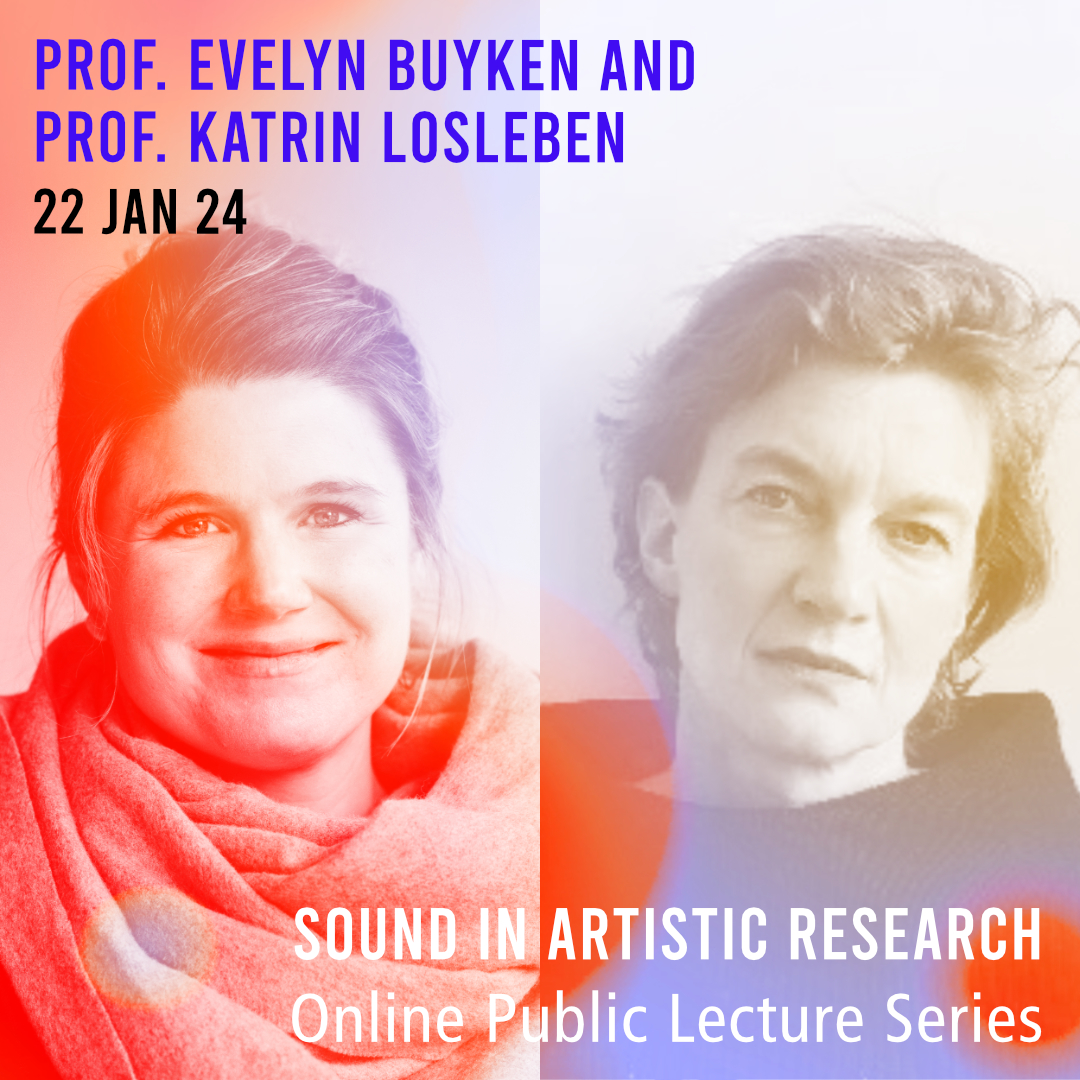
Photo © speaker
5 Feb 2024
Speaker : Dr. Jasmine Guffond
Listening Back
Listening Back is a sounding and listening practice, a Web browser plug-in, and a research into the potential of sound to engage contemporary socio-political contexts, in particular – algorithmic surveillance.
The Listening Back browser add-on sonifies Internet cookies in real-time and has been enacted across live performance, installation, and personal computer usage. By providing situations to listen back to cookie data within the real-time dynamics of Web browsing, the affective, embodying, time-based, omni-directional and experiential affordances of sound are engaged, not primarily as an object of study but as a means of creative inquiry. This sounding strategy for interrupting the visual surface of the browser interface to expose back-end data capture addresses a contemporary situation where panoptic modes of surveillance, reliant on the human sensory modality of vision and a visual representation of the surveillance apparatus, have been largely superseded by non-sensory, post-aesthetic, extractive capacities of algorithmic surveillance. Intangible, automated data capture infrastructures thereby evade human semantic interpretation and scrutiny. Sound as an aesthetic device that registers both conceptually and experientially, is engaged to reinstate sense-making into the online surveillance context and this talk will share artistic outcomes that explore what it means to engage sound to think through and experience contemporary data politics.
Dr. Jasmine Guffond
Jasmine Guffond is an artist and composer working at the interface of social, political and technical infrastructures. Focused on electronic composition across music and art contexts her practice spans live performance, recording, installation and custom made browser add-on. Through the sonification of data she addresses the potential of sound to engage with contemporary political questions and engages listening as a situated knowledge practice. Jasmine completed her PhD at the University of New South Wales Art, Design & Architecture department in 2021 where she conducted practice-based research into sound and listening as a critical modes of inquiry into online surveillance cultures.
Jasmine has exhibited internationally including composing sound for Shulea Cheang’s installation at the Taiwanese Pavilion, Venice Biennale, 2019, and collaborating with Zorka Wollny on a sound installation for the Chicago Architecture Biennal, 2019. She completed her Sound Studies masters at the University der Künste in 2015, received the ‘Working Grant for New Music und Sound Art’ from the Berlin Senate in 2016 and was featured in Wire magazine in 2019. She has performed live internationally at electronic music and art festivals including opening for CTM festival in 2020 and has released solo records to critical acclaim with the Sonic Pieces (2015, 2017), Karl Records (2018) and Editions Mego (2020) labels.
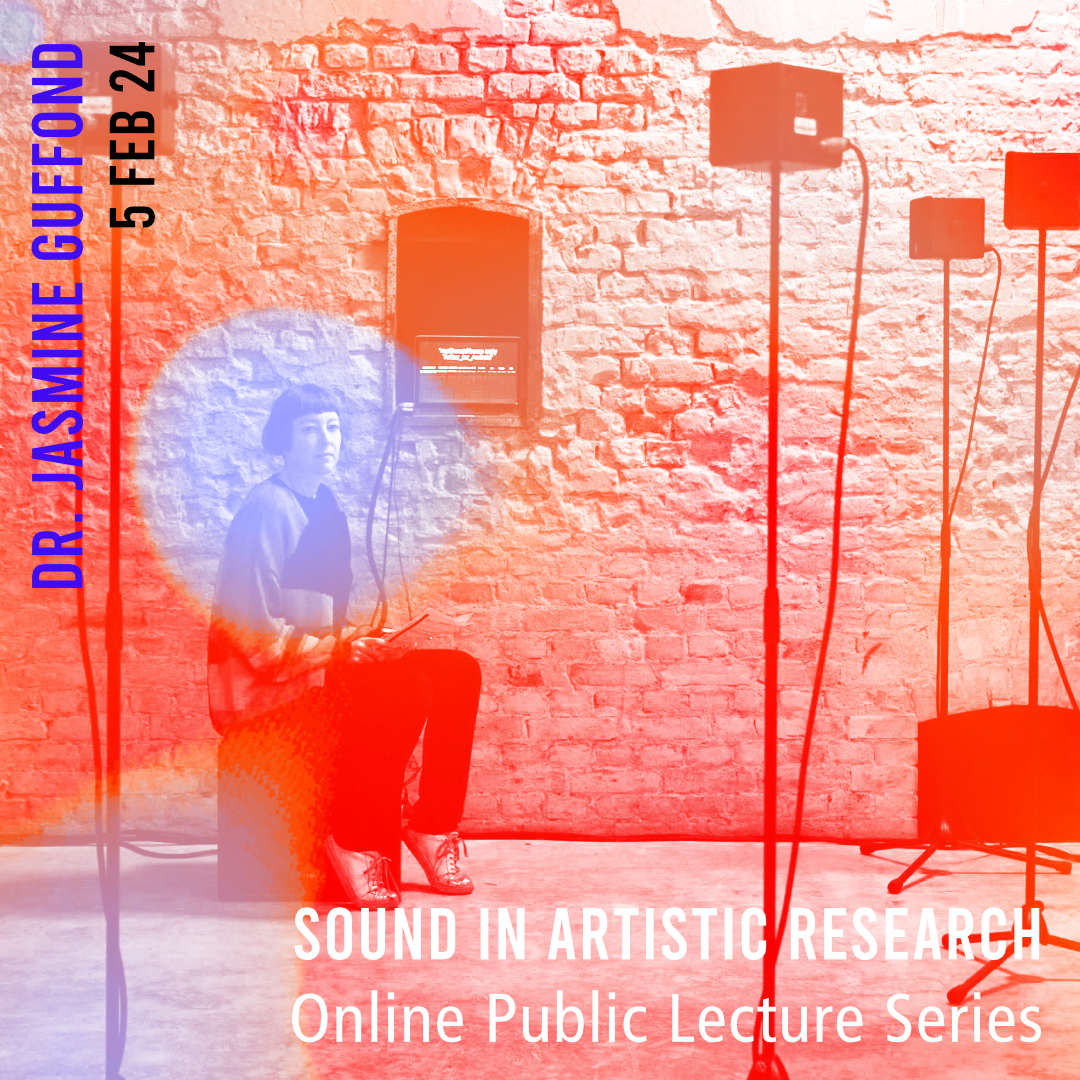
Photo © speaker
12 Feb 2024
Speaker : Dr. Rahma Khazam
Redefining Artistic Research
This lecture will explore the similarities and differences between art and artistic research. Whereas artistic research might focus on the description and presentation of auditory phenomena, sound art tends to privilege sensory experience. And whereas research tends to be an ongoing collective endeavour, an artwork is more often than not a one-off expressing a single artist’s sensibility. Yet at the same time, a research project can also be an artwork, inasmuch as it too can demonstrate creativity and originality. The boundaries between art and artistic research have always been unclear, particularly in the case of sound art, which often involves considerable technical research. I will present different examples of sound works that explore these paradoxes and contradictions, challenging and redefining the notion of artistic research.
Dr. Rahma Khazam
Dr. Rahma Khazam is a researcher affiliated to Institut ACTE, Sorbonne Paris 1 and EnsadLab, Paris. She studied philosophy and art history and received her Ph.D from the Sorbonne in aesthetics and art theory. Her research ranges from sound art and its history to contemporary aesthetics and has been published in edited volumes, academic journals and exhibition catalogues. Recent publications include “Art, Science and the Mutant Object” in Post-Specimen Encounters Between Art, Science and Curating, 2020 ; “Son et Image : Face au Réel” in L’écho du Réel, 2021 ; Objets vivants, ed. Rahma Khazam, Mimesis 2023 ; “Reenvisioning the Technological Sublime” in Christina Kubisch : Inaudible, Invisible, Presses du réel, 2023.
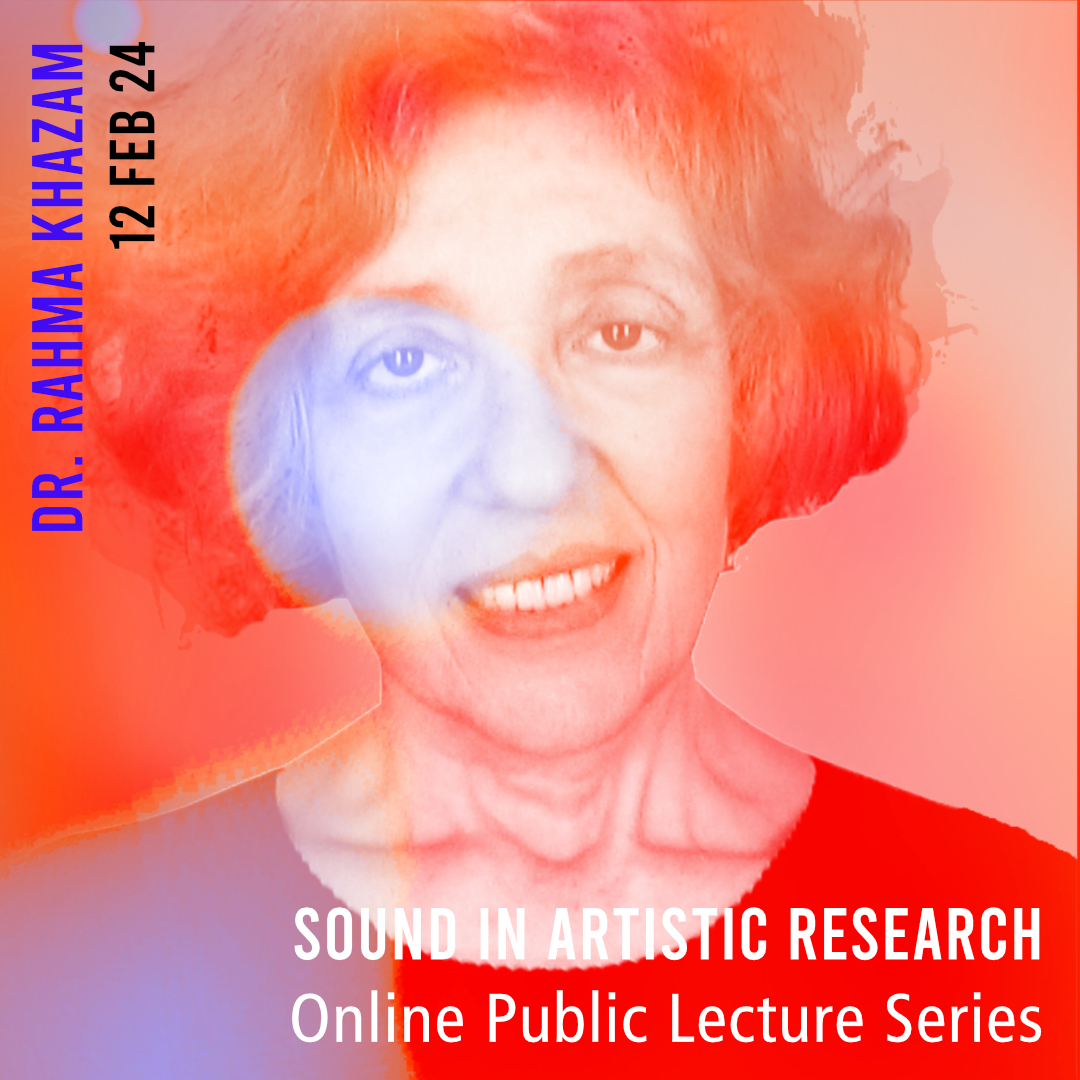
Photo © speaker
